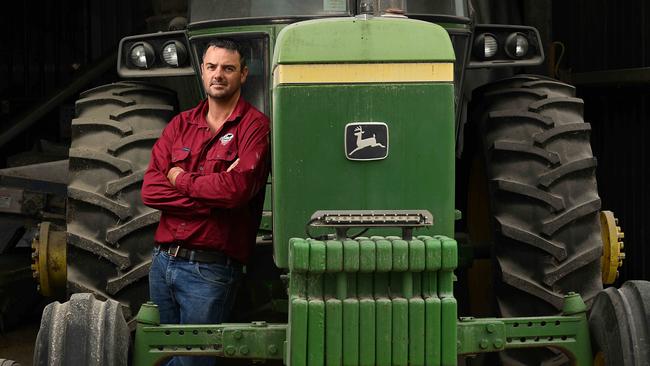Budget 2022: Biosecurity boost a good start, more needed
Farmers have welcomed the short-term biosecurity funding injection delivered in Tuesday’s budget but say a dedicated, sustained funding model is needed.

Farmers have welcomed the short-term biosecurity funding injection delivered in Tuesday’s budget but say a dedicated, sustained funding model is needed to shore up the nation’s borders and fortify confidence in the industry.
Tuesday’s budget made a $134.1m investment in biosecurity, including a fast-tracked $61.6m over the next two years to boost the biosecurity system and $11.7m for more detector dogs at airports and mail centres.
There was also $46.7m to go to the development of improved livestock traceability systems and the rollout by 2025 of a mandatory national contact tracing program for sheep.
Farmers say the budget fell short of the guaranteed long-term funding the industry has been calling for and Labor promised ahead of the election.
“We appreciate we’re still relatively early in the term of this government and work is currently under way, but sustainable biosecurity funding is something the sector is unwavering in its expectation to see implemented when the next budget is handed down,” National Farmers Federation president Fiona Simson said.
Cattle Council of Australia president Lloyd Hick said the promised $200m was timely, given the twin threats of foot-and-mouth disease and lumpy skin disease in Indonesia, but he criticised the “year-to-year” funding arrangements.
“Biosecurity threats will not be going away any time soon and the federal government should acknowledge this with ongoing funding,” he said.
Darling Downs cattle breeder Dean Missingham said a strong biosecurity system underpinned the confidence the livestock sector relied on.
A widespread FMD outbreak in Australia would have a direct economic impact of $80bn over a decade. It would also wipe out Mr Missingham’s fledgling breeding operation west of Toowoomba, where he has established his Dorroughby stud as one of the country’s leading producers of speckle park cattle.
Building a 200-head breeding herd and finetuning genetics of the rare Canadian breed has been a painstaking process for Mr Missingham and his family over the past five years. “We’ve got genetics in our AI (artificial insemination) tanks, but for the herd that’s on the ground, it would destroy it,” he said.
“What we need is a proactive government that’s on the front foot and not waiting around for it to get here.
“These issues are going to keep popping up and they need to be ready for it. It would affect everybody, not just farmers, and would go right through supply chains and back to the consumer.
“If we can prevent diseases like foot-and-mouth coming to our shores, that’s way better than trying to find a cure.”
On Monday, Agriculture Minister Murray Watt said funding provided in the budget was a “substantial down-payment on our election commitment to deliver long-term sustainable biosecurity funding”.
“We will have more to say on this commitment in the future, after we properly consult with industry and other stakeholders,” he said


To join the conversation, please log in. Don't have an account? Register
Join the conversation, you are commenting as Logout